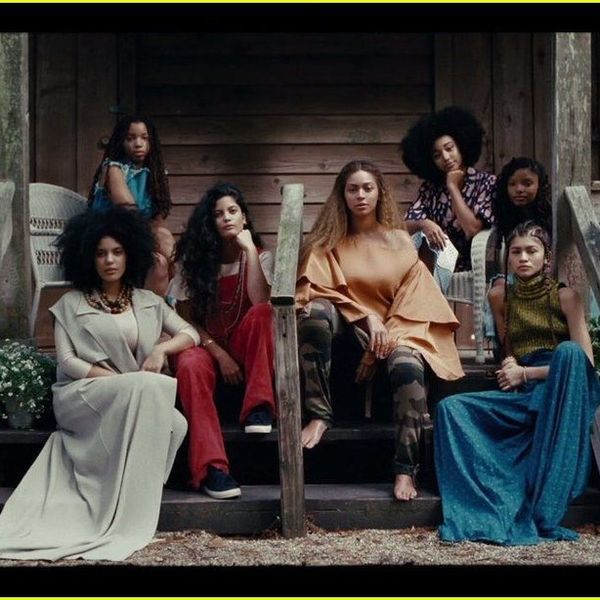The world went on a hunt in search of “Becky” when they heard the line from Beyonce’s new song “Sorry”: “You better call Becky with the good hair.” Who is Becky? Does Becky even exist? These are the questions Beyhive fans were asking themselves as social media blew up to find “Becky,” the mysterious woman who supposedly had an alleged affair with Jay Z. There has been speculation that “Becky” is fashion designer Rachel Roy, the ex-wife of Jay Z’s former friend and business partner Damon Dash, or British singer Rita Ora. This speculation rose after Ora posted on Snapchat a photo of herself wearing a lemon embroidered bralet and a “J” necklace. Roy was accused of being “Becky” after posting a picture on Instagram with the caption, “Good hair don’t care, but we will take good lighting, for selfies, or self-truths always.” The term “Becky” has its own history with its own meaning.
According to Urban Dictionary, “Becky” is usually a white woman who is known for a certain reputation of performing sexual acts. A lot of the definitions of “Becky” on this website would be deemed offensive based on the explicit descriptions and examples. The term “Becky” has been used before in a 2010 rap song by American rapper Plies. The song called, Becky, is about a very promiscuous woman who engages in giving oral sex. One of Plies’ lines from the song emphasizes the extent of this term: “I want yo mouth give me that Becky.” The term has even been used in Sir Mix A Lot’s song, Baby Got Back. The line “Oh my god Becky, look at her butt,” indicates that two woman who are presumed white are making comments about another woman’s physique. The term has been linked to classic literature in the context of the novel, Vanity Fair, in which Becky Sharp, a white woman, who uses her wits and sexual appeal to climb up the social ladder. The term “Becky” has been used in other contexts other than these, but these are just a few to better understand the meaning.
Controversy is circulating about the term, especially by Australian rapper Iggy Azalea, who is deeming the term derogatory. Azalea wrote several tweets on twitter in response to a twitter user calling her “Becky.” Azalea compared the term “Becky” to the same as calling all black men “Deshawn,” all black women “Sha Nay Nay,” and all Asian woman “Ming Lee.” Her argument centered around not wanting any race to be generalized by one term. An article titled, What ‘Becky With the Good Hair’ Is Telling Our Black Daughters, by a black mother who considers herself a Beyonce fan, called the term “racially charged” based on the differentiation of white women being deemed as having “good hair” and black women being deemed as having not good hair. The writer said, “It only serves to make one group of women feel inferior – and the other group either superior or guiltily complacent.”
A UK GLAMOUR magazine article, Things you only know if you’re called Becky and you have good hair, was deleted after posting, “here at GLAMOUR we have TWO staffers called Becky, and guess what they both have good hair.” Both of the staffers featured in a photo are white women with the caption, “Becky (the blonde) is sporting her tousled lob, and Becky (brunette) is all about the ombre.” The article missed on the context of the controversy spreading the saying “Becky with the good hair.” According to Urban Dictionary, the term “good hair” is a “popular term in the African-American community, used to describe a black person’s hair that closely resembles the hair of a typical white person.” There is even a comedic documentary called, Good Hair, in which comedian Chris Rock sets out to understand the importance of hair among black women.
So whether listeners find the saying offensive or not, it has taught others a deeper understanding of where “Becky” and “good hair” originate from. No one may ever know who “Becky” is or if she exists, but the album, Lemonade, has a more underlying meaning behind infidelity, black women empowerment, and acceptance.




















